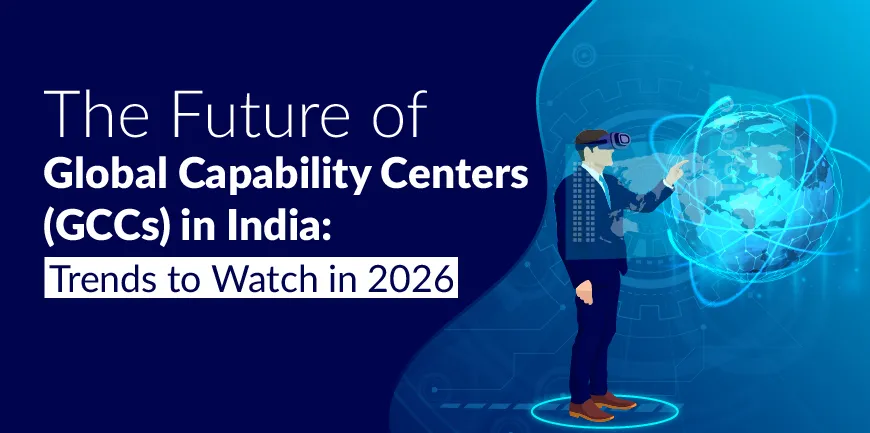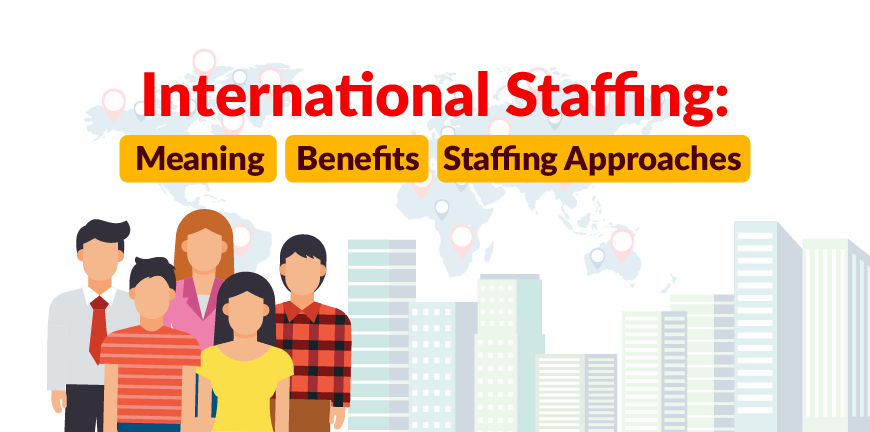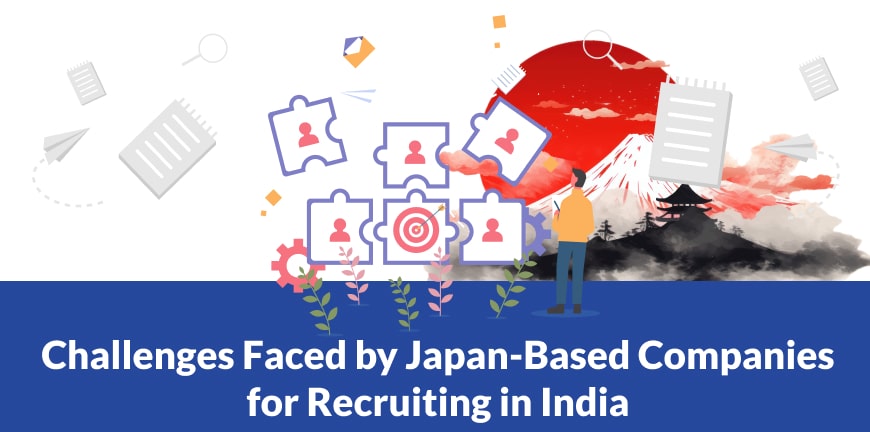
Employer Branding & Candidate Experience: Leveraging Tech for Better Hiring in Sectors Like FMCG & Retail
07/11/2025Top Semiconductor Recruitment Trends & Skills in Demand for 2026
07/11/2025- How Have GCCs In India Evolved from Cost Centers to Innovation Hubs?
- Why Is India the Leading Global Hub for GCCs in 2026 and Beyond?
- What are the 8 Key Trends Shaping the Future of GCCs in India by 2026?
- How Are Talent and Leadership Redefining the GCC Ecosystem?
- What Emerging Technologies Are Powering Next-Gen GCCs?
- How will the GCC Landscape Look in India by 2026?
- How Does ALP Consulting Help Enterprises Build Future-Ready GCCs?
- Conclusion
- Key Takeaways
- FAQs
“Selecting the right location remains critical to the long-term success of any GCC. India’s leading office markets continue to offer a compelling value proposition to GCCs.”- Shrinivas Rao (CEO, Vestian)
Are GCCs going to be the catalyst that will drive India’s GDP growth to the next level? Is India ready to embrace the business transformation through GCC?
The future of GCCs in India is entering a transformative phase, shifting from cost efficiency to innovation leadership. By 2026, India’s GCCs will drive global digital transformation, AI adoption, and end-to-end product ownership. With strong talent ecosystems, tech integration, and expansion into Tier-2 cities, India is redefining the global GCC growth narrative.
Let’s discuss the 8 key GCC trends 2026 that are going to drive the future of GCCs in India and empower companies to grow their business in multiple folds, paving the way for unprecedented success in the global arena.
How Have GCCs In India Evolved from Cost Centers to Innovation Hubs?
GCCs in India are no longer just centres for “back-office” operations. They are now transformed into Global Brain Trusts & Strategic Value Centers, taking on core product development, global P&L responsibility, &end-to-end service ownership.
As of FY 2024-25, 24 GCCs have reportedly crossed the $1 billion export revenue mark, up from 19 the previous year, demonstrating the massive scale achieved by mature centers.
The future of GCCs in India looks bright as tier-1 and tier-2 cities are experiencing a significant rise in GCCs due to lower operational costs, the availability of untapped talent, & supportive state-level government policies.
Here are 5 ways GCCs in India have transitioned from cost-saving centres to innovation hubs:
1. Focus on End-to-End Ownership
GCCs now execute complete product lifecycles, from design to deployment. The future of GCCs in India will involve driving innovation, faster market entry, & value creation rather than just offering support or back-office operations.
2. Adoption of Emerging Technologies
By integrating AI, ML, IoT, and blockchain, GCCs have evolved into digital innovation centers delivering advanced solutions that enhance customer experiences and operational efficiency. Nearly 50% of GCC leaders are now planning to prioritize AI as a separate, core function within the next 3 years.
3. Collaboration with Startups and Academia
GCCs actively partner with Indian startups, research institutions, & universities to co-create new technologies, build prototypes, and accelerate R&D innovation across global product portfolios.
4. Upskilling and Talent Transformation
GCCs across India are investing heavily in employee upskilling, leadership development, & digital capabilities. This is transforming the workforce into strategic innovators equipped to drive business transformation & global competitiveness.
5. Shift Toward Strategic Business Roles
GCCs now contribute to corporate strategy, innovation roadmaps, & customer experience design, positioning themselves as key global decision-making centers within multinational enterprises.
Why Is India the Leading Global Hub for GCCs in 2026 and Beyond?
India’s dominance as the Global Capability Center (GCC) hub is accelerating beyond mere cost advantage, solidifying its position for 2026 and beyond. Here are 5 reasons that establish India as the leading hub for GCC deployment:
1. Unmatched Scale and Global Market Share
India’s vast GCC ecosystem offers global enterprises operational scale, cross-industry expertise, & strategic alignment for end-to-end business transformation & innovation delivery. Currently, India hosts nearly 1,700+ GCCs (projected to hit 2,100 to 2,400 by 2030), accounting for approximately 55% of the global GCC market share.
2. Vast and Evolving Talent Pool
A diverse, tech-savvy, & continuously upskilled workforce, combined with talented fresh graduates, positions India as the ideal hub for global innovation & strategic capability building. The GCC workforce in India currently employs 1.9 million+ professionals, projected to exceed 2.5 million by 2030. Moreover, India’s 5 million+ technology professional pool is the second largest globally, firmly boosting the future of GCCs in India
3. The Center for Next-Gen Tech Adoption (AI Focus)
Indian GCCs lead in adopting AI, automation, & data intelligence to drive smarter, faster, & more resilient business models worldwide. Nearly 70% of GCCs in India are actively investing in or piloting Generative AI (GenAI) use cases. Furthermore, over 40% of digital transformation projects are being driven out of GCCs in India.
4. Significant Economic Value and Growth Projection
India’s GCC landscape strengthens business resilience, enhances digital competitiveness, & fuels consistent value creation through innovation-led operations and knowledge capital. The total revenue of the Indian GCC market is estimated at approximately $64.6 billion (2024) & is projected to surge to $100 billion to $110 billion by 2030.
5. Enduring Cost-Efficiency and Talent Competitiveness
India combines cost efficiency with exceptional talent quality, offering sustainable value & long-term competitive advantage for global enterprises establishing or expanding GCCs. India continues to offer operational expenses that are up to 40% lower than those in Eastern Europe, & up to 70% less expensive for top tech talent compared to the US/EU.
What are the 8 Key Trends Shaping the Future of GCCs in India by 2026?
The future of GCCs in India is defined by a rapid shift from cost optimization to strategic innovation. By 2026, these centers will be indispensable architects of global digital transformation and core business value. Here are 8 GCC trends 2026 that every upcoming and established company must be aware of before they venture into launching GCC services.
1. AI-Driven Transformation Across Functions
GCCs are embedding AI and automation as a performance booster into core operations, enabling predictive analytics, intelligent decision-making, and process optimization across finance, HR, supply chain, and customer experience. Over 70% of GCCs are currently investing in AI, with a sharp focus on areas like customer experience (69%), operations (57%), & cybersecurity (47%).
2. Rise of Product and Platform Ownership
Indian GCCs are shifting from support roles to full ownership of digital products, platforms, and intellectual property, driving innovation and business outcomes for global enterprises. Approximately 60% of India’s GCCs are now managing end-to-end product development or analytics mandates, a significant leap from the figure less than five years ago.
3. Expansion into Tier-II and Tier-III Cities
Organizations are establishing GCCs beyond metro hubs to tap into emerging talent markets, reduce costs, & diversify operational risk while promoting regional economic development. The share of GCC units located in Tier-2 and Tier-3 Indian cities has reached approximately 7% in FY2024-25, up from around 5% in FY2019, with over 220 centers now operational in these smaller regions.
4. Focus on Sustainability and Green Operations
Sustainability is becoming central, with GCCs adopting eco-friendly practices, energy-efficient infrastructure, & responsible sourcing to align with global ESG and corporate responsibility goals. Around 52% of GCCs across India have proactively implemented refined internal Environmental, Social, and Governance (ESG) policies.
5. Deep Integration of Cloud and Data Analytics
Cloud-native infrastructure & advanced analytics are redefining how GCCs deliver scalability, agility, and real-time business intelligence to support global digital transformation. Around 55% of GCCs have established a mature data & analytics practice, which is closely followed by cybersecurity & robotic process automation.
6. Workforce Transformation and Future Skills Development
Continuous learning, digital upskilling, and hybrid workforce models are assisting GCCs in building agile, innovation-ready teams aligned with evolving technology & business landscapes. Approximately 78% of GCCs are actively upskilling & reskilling their internal teams to facilitate the adoption of GenAI, Cloud, & Cybersecurity.
7. Strengthening Cybersecurity and Data Governance Frameworks
With increasing digital operations, GCCs are prioritizing cybersecurity, data privacy, and governance frameworks to safeguard information and ensure regulatory compliance across global markets. As GCCs lead cloud modernization for their HQs, securing multi-cloud environments is now a primary mandate, necessitating advanced encryption and cloud-native security tools. Moreover, nearly 70% of GCCs are now utilizing cloud-element safety platforms.
8. Greater Role in Strategic Decision-Making
GCCs are evolving into strategic centers of excellence, influencing corporate strategy, product innovation, and customer engagement for global headquarters. The strategic vision of GCCs in India is to contribute $470–$600 billion to India’s GDP by FY’30, with a focus on shifting the mandate from scale-driven operations to capability-led mandates in R&D & global decision-making.
How Are Talent and Leadership Redefining the GCC Ecosystem?
Talent and leadership are transforming the GCC ecosystem by elevating the mandate from cost efficiency to global innovation and product ownership. This requires leaders with strategic influence and a workforce continuously reskilled in niche, emerging technologies. The future of GCCs in India hinges entirely on their ability to attract, develop, and retain high-value talent and leadership. This focus is redefining how GCCs operate globally.
Here are 5 ways talent and leadership are reshaping India’s GCC ecosystem:
1. Leadership with a Global-Local Mindset
Modern GCCs are led by visionaries who blend global best practices with local insights, fostering inclusive cultures, agile decision-making, & innovative leadership development across diverse markets.
Example: Nearly 81% of HQ leaders and 63% of GCC leaders recommend promoting cross-functional & cross-geography initiatives involving collaboration between GCCs & HQ teams to boost alignment.
2. Building Future-Ready Talent Pipelines
GCCs are investing in upskilling, cross-functional exposure, & digital literacy to nurture future-ready talent capable of driving innovation, automation, and global collaboration across business functions.
Based on emerging GCC trends 2026, around 40% of GCCs are expanding their hiring into Tier-2 & Tier-3 cities to tap into new talent pools and mitigate attrition risks in Tier-1 metros.
3. Empowering Leaders through Data-Driven Decision Making
Leadership models are evolving from intuition-led to data-driven, enabling GCC leaders to make smarter, faster, & more strategic decisions in sync with global business priorities. Over 72% of GCC leaders cite talent management (which includes retention & skill-gap analysis) as a key priority to secure the future of GCCs in India.
4. Creating a Culture of Continuous Learning
Talent strategies now emphasize lifelong learning via mentorship, reskilling programs, & innovation labs, ensuring employees adapt to evolving technologies and global delivery demands. More than 75% of GCC leaders are continuously supporting AI upskilling plans throughout the organization.
5. Driving Inclusion and Purpose-Led Leadership
Modern GCC leadership prioritizes diversity, inclusion, & purpose, building work environments that inspire engagement, creativity, and belonging while strengthening employer brand value globally.
The Deloitte India GCC Culture Sensing Report 2025 has revealed a strong Culture Index of 82/100, with nearly 95% of companies excelling in empowerment & inclusion.
What Emerging Technologies Are Powering Next-Gen GCCs?
Here are the top 5 emerging technologies empowering the future of GCCs in India
1. Artificial Intelligence (AI) and Machine Learning (ML)
AI and ML are powering GCCs to automate repetitive processes, enhance decision-making, predict business outcomes, and personalize customer experiences. The integration of AL and ML with GCC operations will drive efficiency, innovation, and scalability, bringing better ROI and brand value. A whopping 80% of new GCCs being established prioritize AI/ML capabilities from day one.
2. Cloud Computing and Edge Technologies
Cloud and edge solutions are enabling smooth scalability, real-time data processing, & global collaboration. This allows GCCs to manage complex workloads efficiently while ensuring security, flexibility, & cost optimization across multiple business functions. The global edge computing market is projected to reach $3,144.6 Million by 2033 (in the GCC region), growing at a CAGR of 26.2% from 2025.
3. Robotic Process Automation (RPA) and Hyper Automation
GCCs are adopting RPA & hyperautomation to streamline workflows, reduce manual errors, & enhance productivity, creating intelligent ecosystems where humans & bots collaborate for higher accuracy and operational agility. The Indian RPA Market is projected to reach $1,809.1 million by 2032, registering a CAGR of 23.55% from 2025.
4. Advanced Analytics and Predictive Intelligence
Using predictive analytics to a full extent, GCCs are leveraging big data to forecast trends, optimize business performance, & make proactive decisions, transforming data into actionable intelligence that drives continuous innovation and competitiveness. Moreover, over 50% of India’s GCCs have evolved into portfolio and transformation hubs in FY24-25, up from 18% in FY13.
5. Generative AI and Cognitive Technologies
Generative AI tools are revolutionizing innovation within GCCs by automating content creation, design, and ideation processes, while cognitive technologies enhance problem-solving, creativity, and human-machine collaboration for strategic business transformation.
How will the GCC Landscape Look in India by 2026?
By 2026, India’s GCC landscape will evolve into a powerhouse of innovation, digital excellence, & strategic transformation. As we understood from GCC trends 2026, they will move beyond cost arbitrage to become global centers for R&D, AI-driven operations, and enterprise innovation.
With talent hubs expanding across tier-2 cities and a sharper focus on sustainability, data security, and automation, India will host a new wave of global capability centers built on agility, hybrid work models, and future-ready leadership. The GCC ecosystem will symbolize India’s rise as a strategic partner, driving global enterprises toward resilience, efficiency, & technological advancement.
How Does ALP Consulting Help Enterprises Build Future-Ready GCCs?
Alp Consulting empowers enterprises to establish and scale future-ready GCCs through comprehensive people, process, and technology solutions. From setting up new centers to managing end-to-end HR operations, ALP delivers expertise in payroll management, recruitment, compliance, and digital transformation. The firm helps enterprises identify top talent, streamline onboarding, ensure regulatory adherence, and implement agile workforce models.
With cutting-edge tech-driven HR solutions and strategic consulting, Alp ensures every GCC operates efficiently, compliantly, and competitively. Its integrated approach transforms GCCs into global innovation engines, enabling organizations to unlock operational excellence, optimize costs, & build sustainable, future-focused GCCs in India’s evolving landscape.
Conclusion
As India cements its leadership as the global hub for next-generation GCCs, enterprises must embrace innovation, digital agility, and workforce transformation to stay ahead. With ALP Consulting’s proven expertise in HR, payroll, compliance, and Zoho-driven digital solutions, organizations can seamlessly set up, scale, and optimize high-performing GCCs. Partner with ALP Consulting today to build a future-ready, compliant, and innovation-led GCC that drives global value creation and business excellence across markets.
Key Takeaways
- India is evolving from a cost-saving hub to a global GCC innovation powerhouse.
- AI, automation, and analytics are defining the next era of GCC operations.
- Tier-2 cities are emerging as key hubs for talent and cost efficiency.
- Leadership and continuous learning are reshaping workforce capability and performance.
- ALP Consulting enables enterprises to build agile, tech-driven, and future-ready GCCs.
FAQs
1. What is the future of GCCs in India?
India’s GCCs will evolve into global innovation hubs, driving digital transformation, AI adoption, & strategic value creation for multinational enterprises.
2. Which industries are expanding GCCs in 2026?
Sectors like BFSI, healthcare, retail, manufacturing, and technology are rapidly expanding GCC operations across India to boost R&D, analytics, and automation capabilities.
3. What are the key trends shaping GCCs globally?
The top GCC trends 2026, such as AI-driven automation, sustainability, data governance, hybrid work models, and leadership transformation, are redefining GCC operations worldwide.
4. Why are Tier-2 cities important for GCC expansion?
Tier-2 cities offer cost efficiency, emerging talent pools, infrastructure readiness, and de-risking opportunities for sustainable GCC growth.
5. How is ALP Consulting supporting future-ready GCCs?
ALP Consulting empowers enterprises with digital HR, compliance, and technology-driven workforce solutions for scalable, compliant, and efficient GCC operations.

Kishore V N
Kishore V N is the Managing Director at ALP Consulting, bringing over 29 years of extensive experience in global recruitment, talent strategy, and workforce solutions. He has been instrumental in building scalable RPO, MSP, and modular talent sourcing models that empower organizations with a competitive edge in talent acquisition. Kishore’s leadership focuses on expanding ALP’s global presence, driving innovation in recruitment technology, and enhancing operational excellence. He also serves as Director at Datacore Technologies, steering digital HR transformation through advanced HRMS and virtual staffing solutions.




